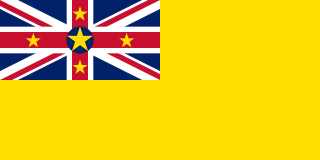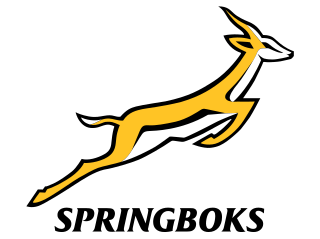Related Research Articles

The politics of Niue take place in a framework of a parliamentary representative democratic dependency, whereby the Chief Minister is the head of government, and of a non-partisan system. Niue is self-governing in free association with New Zealand and is fully responsible for internal affairs. New Zealand retains some responsibility for external affairs, in consultation with Niue. The Niue Constitution Act 1974 (NZ) vests executive authority in His Majesty the King in Right of New Zealand and the Governor-General of New Zealand. The constitution specifies that in everyday practice, it is exercised by a Cabinet of the Premier of Niue and three other ministers. The premier and ministers must be members of the Niue Assembly, the nation's legislative assembly. The Judiciary is independent of the executive and the legislature.
De facto describes practices that exist in reality, regardless of whether they are officially recognized by laws or other formal norms. It is commonly used to refer to what happens in practice, in contrast with de jure, which refers to things that happen according to official law, regardless of whether the practice exists in reality.
The Rivonia Trial is a trial that took place in apartheid-era South Africa between 9 October 1963 and 12 June 1964, after a group of anti-apartheid activists were arrested on Liliesleaf Farm in Rivonia. The farm had been the secret location for meetings of uMkhonto we Sizwe (MK), the newly-formed armed wing of the African National Congress. The trial took place at the Palace of Justice, Pretoria, and led to the imprisonment of Nelson Mandela, Walter Sisulu, Govan Mbeki, Ahmed Kathrada, Denis Goldberg, Raymond Mhlaba, Elias Motsoaledi, Andrew Mlangeni. Many were convicted of sabotage and sentenced to life.

The South Africa national rugby union team, commonly known as the Springboks, is the country's national team governed by the South African Rugby Union. The Springboks play in green and gold jerseys with white shorts. Their emblem is a native antelope, the Springbok, which is the national animal of South Africa. The team has been representing South African Rugby Union in international rugby union since 30 July 1891, when they played their first test match against a British Isles touring team. They are currently the number one ranked rugby team in the world and the reigning World Champions, having won the World Cup on a record four occasions. They are also the second nation to win the World Cup consecutively, and stand second to their rivals the Allblacks as the second most winning team across all rugby of all time.
Group Areas Act was the title of three acts of the Parliament of South Africa enacted under the apartheid government of South Africa. The acts assigned racial groups to different residential and business sections in urban areas in a system of urban apartheid. An effect of the law was to exclude people of color from living in the most developed areas, which were restricted to Whites. It required many people of color to commute large distances from their homes to be able to work. The law led to people of color being forcibly removed for living in the "wrong" areas. People of colour, who were the majority at the time, were given much smaller areas to live in than the white minority who owned most of the country. Pass Laws required people of color to carry pass books and later "reference books", similar to passports, to enter the "white" parts of the country.

Robert Anthony John Hewitt is a former professional tennis player from Australia. In 1967, after marrying a South African, he became a South African citizen. He has won 15 major titles and a career Grand Slam in both men's and mixed doubles.
The Namibian is the largest daily newspaper in Namibia. It is published in English and Oshiwambo.

South Africa, officially the Republic of South Africa, is the southernmost country in Africa. It is bounded to the south by 2,798 kilometres (1,739 mi) of coastline that stretches along the South Atlantic and Indian Oceans; to the north by the neighbouring countries of Namibia, Botswana, and Zimbabwe; and to the east and northeast by Mozambique and Eswatini. It also completely enclaves the country Lesotho. It is the southernmost country on the mainland of the Old World, and the second-most populous country located entirely south of the equator, after Tanzania. South Africa is a biodiversity hotspot, with unique biomes, plant and animal life. With over 62 million people, the country is the world's 23rd-most populous nation and covers an area of 1,221,037 square kilometres. Pretoria is the administrative capital, while Cape Town, as the seat of Parliament, is the legislative capital. Bloemfontein has traditionally been regarded as the judicial capital. The largest city, and site of highest court is Johannesburg.
A dominion was any of several self-governing nations of the British Empire. With the evolution of the British Empire into the Commonwealth of Nations, the dominions became independent states.
References
- Government Gazette of the Republic of South Africa , Volumes 416–535.
- "Acts". South African Government Information. Archived from the original on 22 June 2011. Retrieved 14 June 2011.